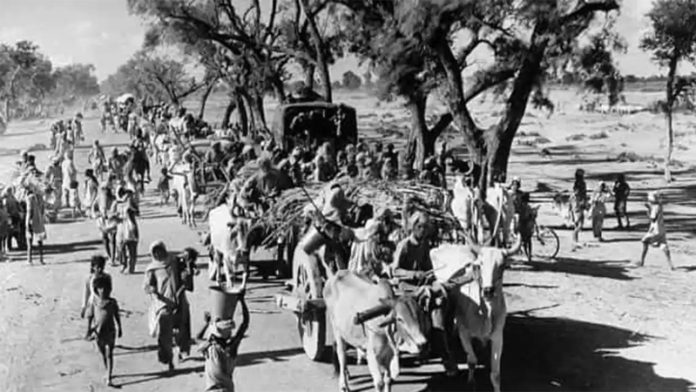BS Dara
Seventy-six years ago, in 1947, my grandparents embarked on a harrowing journey, leaving behind their beloved village of Palandri in Pakistan. This traumatic exodus was a direct consequence of the horrific and devastating partition of India, an event orchestrated by the departing British imperialists. The partition has been recorded as the largest mass migration in human history, displacing millions and tearing apart the fabric of countless lives.
My family eventually found refuge in a village along the Indo-Pak border on the Indian side. However, the memories of their ancestral home in Pakistan remained etched in the hearts of my grandparents. My grandmother, in particular, would often recount the agonizing tales of the chaos that ensued when the non-Muslim community in their village was informed about the partition. They were told that Pakistan was no longer their country and that they had to leave immediately if they wished to survive.
“People were seen frantically running all around, packing as much as they could for a journey they didn’t know how long and where to,” my grandmother would lament. Her stories were filled with anguish and sorrow, painting a vivid picture of a time when humanity was at its lowest ebb. She would narrate the tragic fate of our neighbor’s family, who had three young daughters. Fearing the dishonor that could befall them at the hands of Muslim men, their father chose a heart-wrenching path-he killed his own daughters. This horrifying act of desperation spread fear like wildfire, prompting many other elderly men to follow suit.
I would look into my grandmother’s old eyes, red with pain, her tears reflecting the deep-seated agony of those dark days. “That was a catastrophic time,” she would say. “My sister’s husband put his three kids to sleep with opium and left them in the house while they joined the massive caravan of migrants fleeing to India.”
The journey was grueling, spanning fourteen days on foot through dense jungles and treacherous ravines. “We drank animal urine from puddles, ate grass while walking, and stopped and ducked as instructed by the Indian army, who kept us safe from occasional attacks,” she recalled. The sound of gunshots, an alien noise to her, echoed through the air, and she witnessed people falling and dying. A bomb landed on the mob, killing her sister. When she tried to attend to her, the army pushed them to keep moving, to save their lives.
I was born and raised in India, and when my grandmother passed away in 2017, a profound void was left in our lives. Her passing severed a vital connection to our ancestral land in Pakistan. Over the past twenty years working in the GCC region, I have had the opportunity to reconnect with many people from Pakistan, some of whom have become close family friends. They are amazing individuals, with great souls, proving my grandmother’s belief that it was never the people who were wrong but the circumstances.
“Our neighbors were good Muslim families, always there in times of need, very supportive. We would attend each other’s weddings and religious functions,” my grandmother would often say. Now, I understand the truth in her words. Despite the political boundaries and historical conflicts, the people on both sides of the border are fundamentally good, friendly, and kind-hearted. There are no boundaries in the hearts of people who have shared similar experiences and pain. This realization has reaffirmed my belief in the inherent goodness of humanity, transcending borders and divisions.


